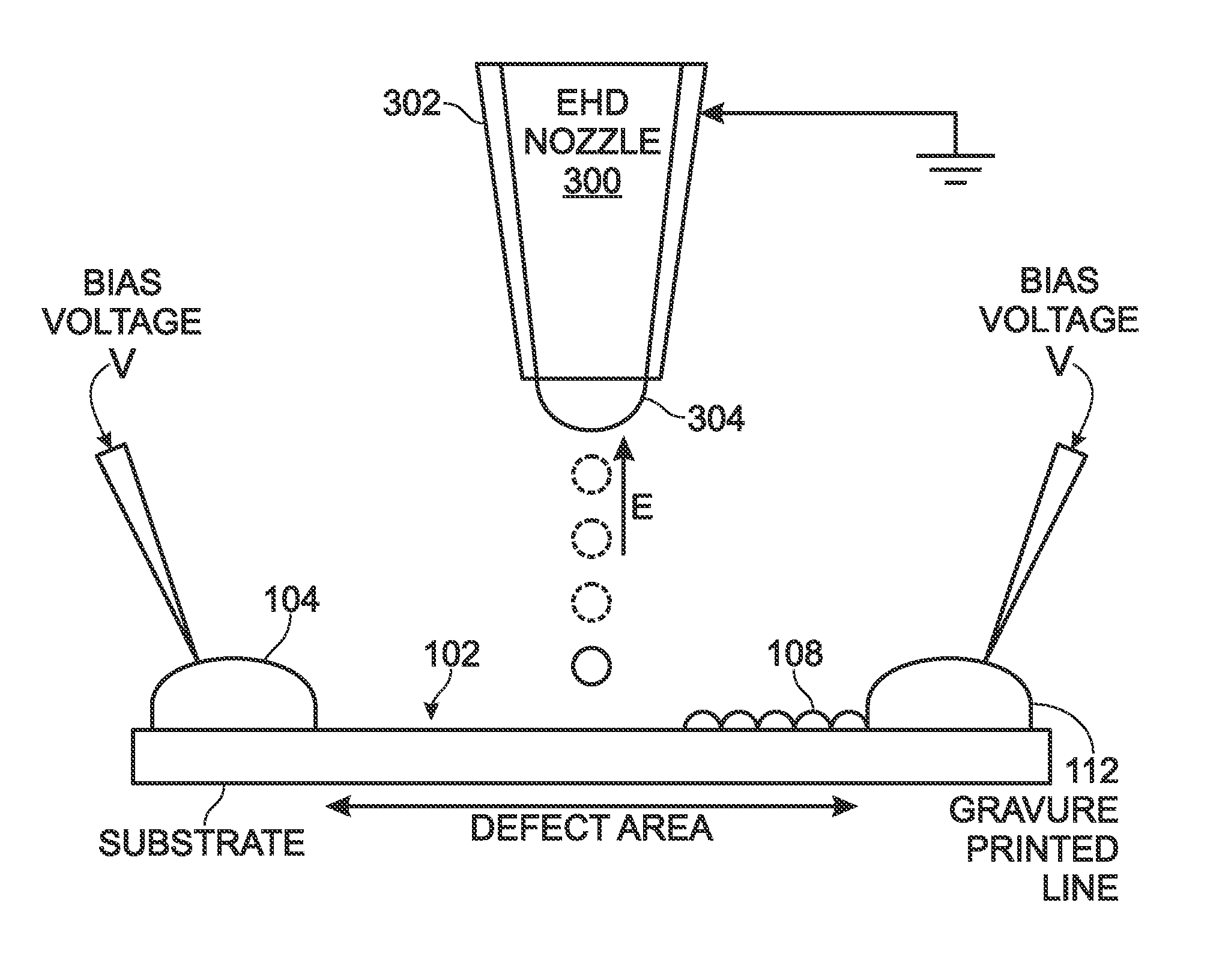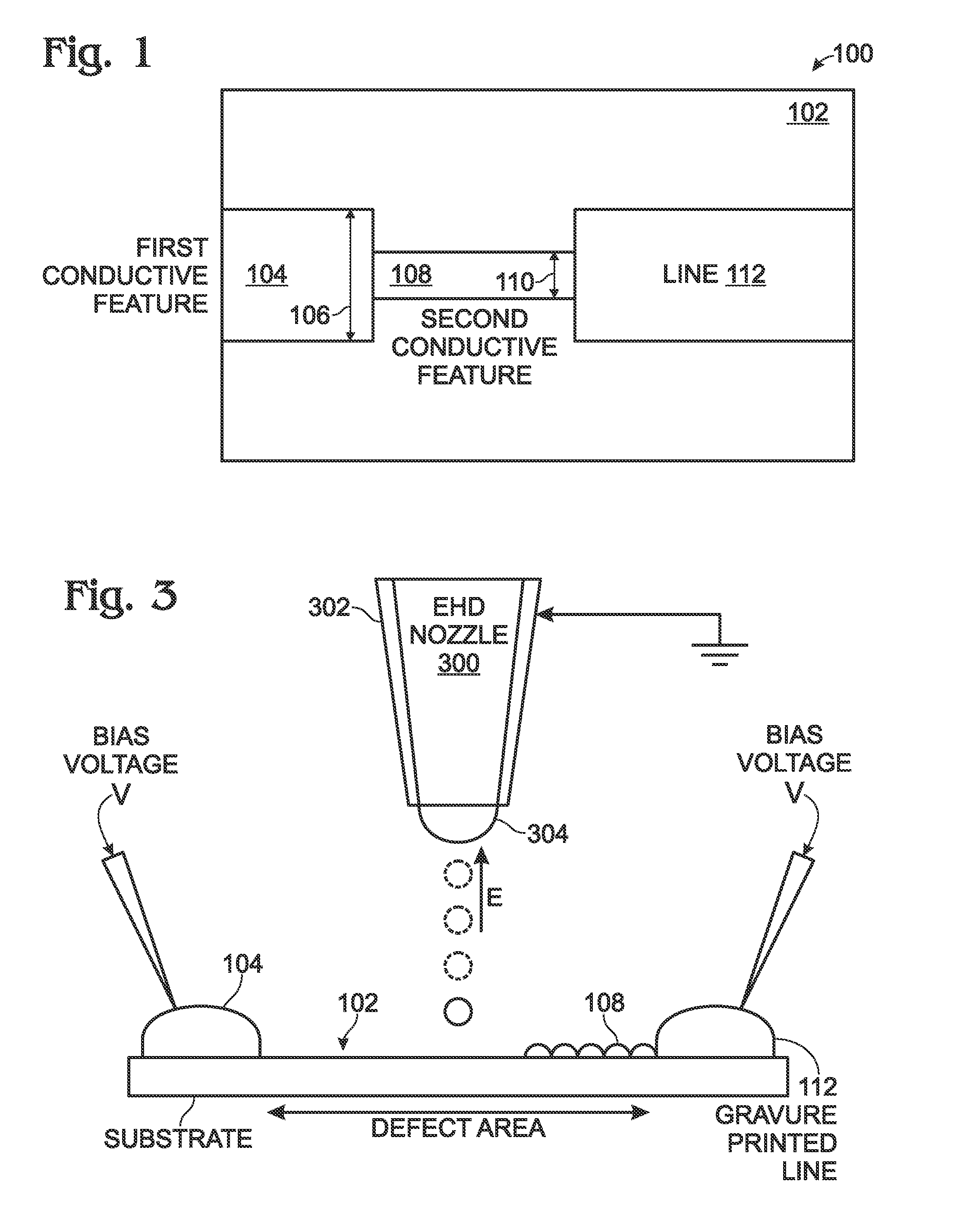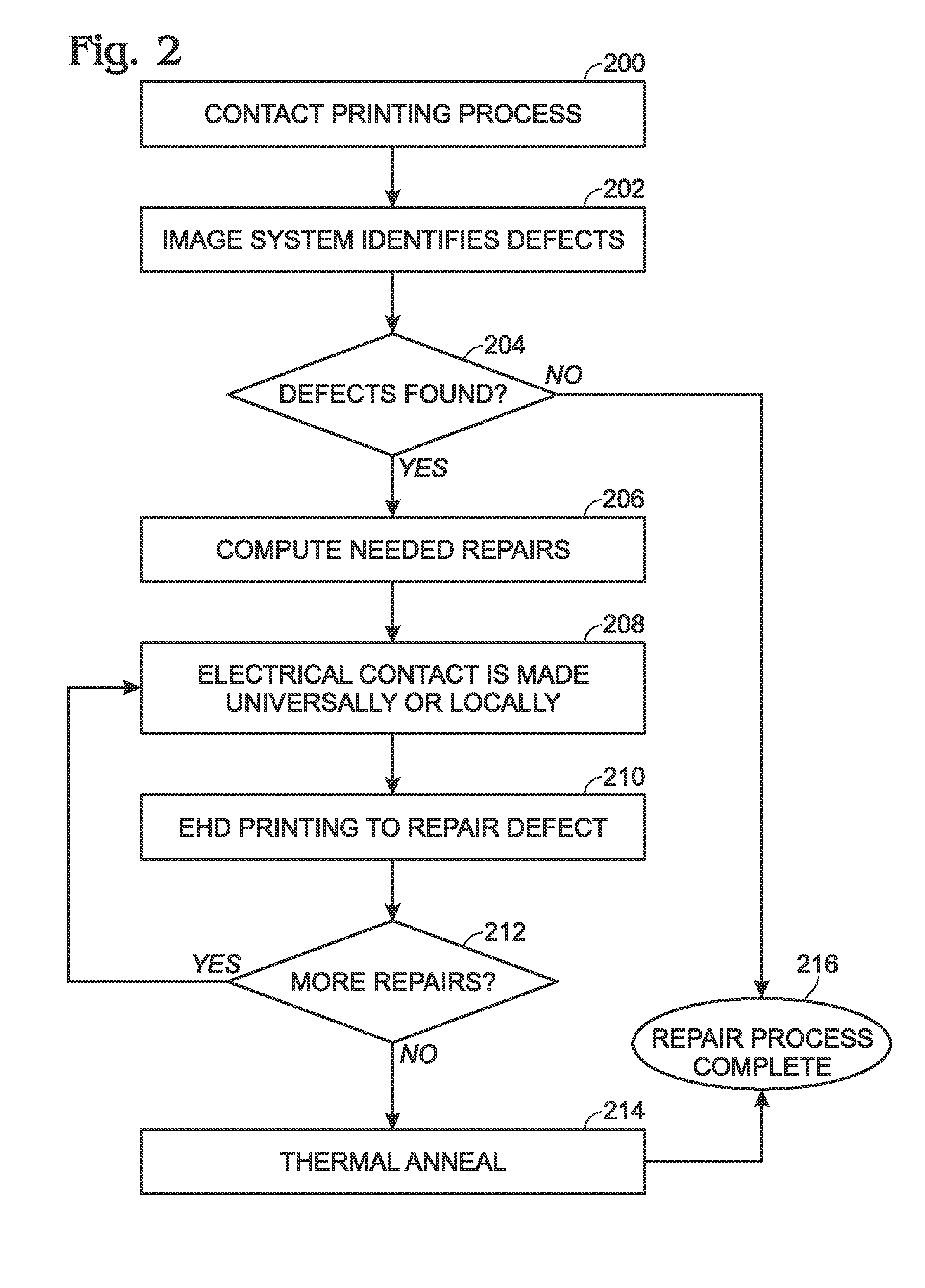Electrohydrodynamic (EHD) Printing for the Defect Repair of Contact Printed Circuits
a technology of electrohydrodynamic printing and contact printed circuits, which is applied in the direction of liquid/fluent solid measurement, fluid pressure measurement, peptides, etc., can solve the problem that the intended pattern transfer will never be completely accurate, and achieve the effect of removing discontinuity
- Summary
- Abstract
- Description
- Claims
- Application Information
AI Technical Summary
Benefits of technology
Problems solved by technology
Method used
Image
Examples
Embodiment Construction
[0024]FIG. 1 is a plan view of a repaired contact printed circuit. The circuit 100 comprises a substrate with a top surface 102. A first conductive feature 104 overlies the substrate top surface 102 having a width 106 greater than about 5 microns. A second conductive feature 108 overlies the substrate top surface 102, and is electrically connected to the first conductive feature 104. The second conductive feature 108 has a width 110 of less than 1 micron. As shown, the first conductive feature 104 is a line, and the second conductive feature 108 is a line acting as a bridge to electrically connect the first conductive feature to another line 112. In other aspects not shown, a plurality of second features is formed in parallel between the first conductive feature 104 and line 112 to minimize resistance. Although straight lines have been depicted for simplicity, it should be understood that conductive features having a width of less than 1 micron can be formed between other conductive...
PUM
| Property | Measurement | Unit |
|---|---|---|
| Width | aaaaa | aaaaa |
| Width | aaaaa | aaaaa |
| Width | aaaaa | aaaaa |
Abstract
Description
Claims
Application Information
 Login to View More
Login to View More - R&D
- Intellectual Property
- Life Sciences
- Materials
- Tech Scout
- Unparalleled Data Quality
- Higher Quality Content
- 60% Fewer Hallucinations
Browse by: Latest US Patents, China's latest patents, Technical Efficacy Thesaurus, Application Domain, Technology Topic, Popular Technical Reports.
© 2025 PatSnap. All rights reserved.Legal|Privacy policy|Modern Slavery Act Transparency Statement|Sitemap|About US| Contact US: help@patsnap.com



